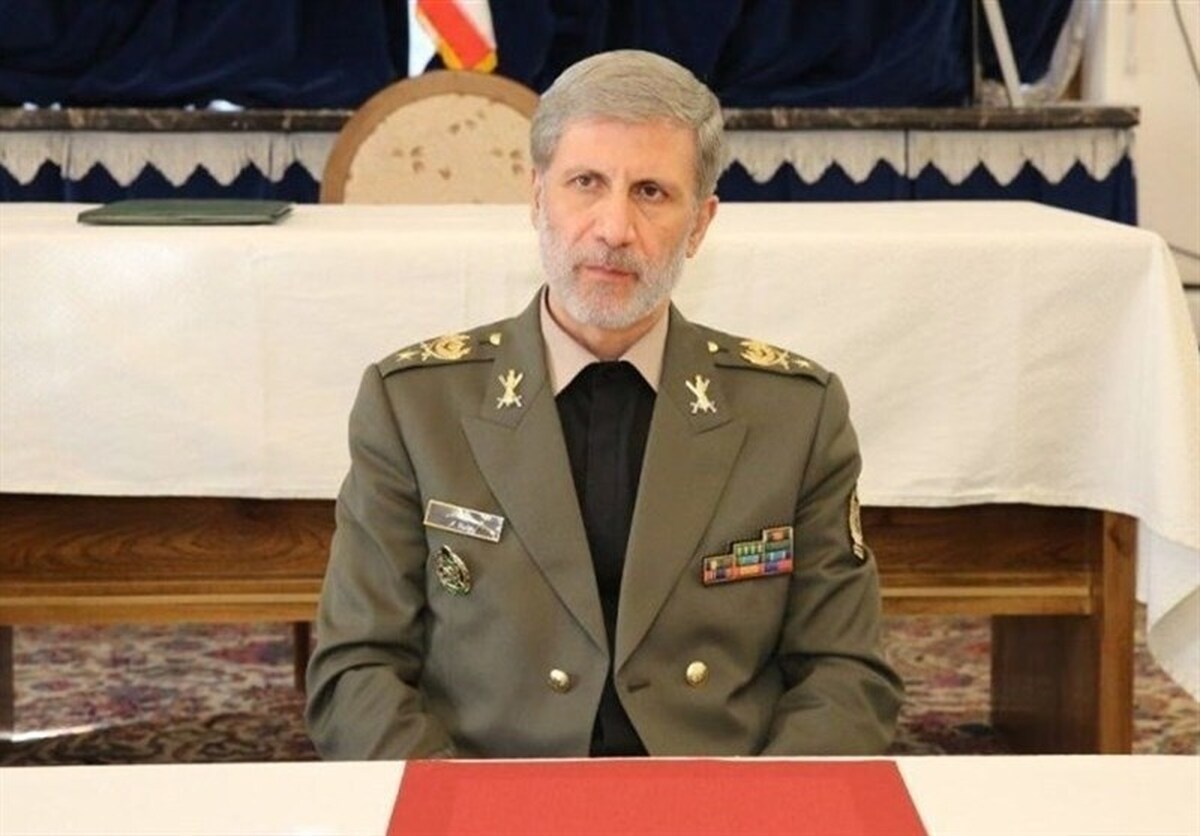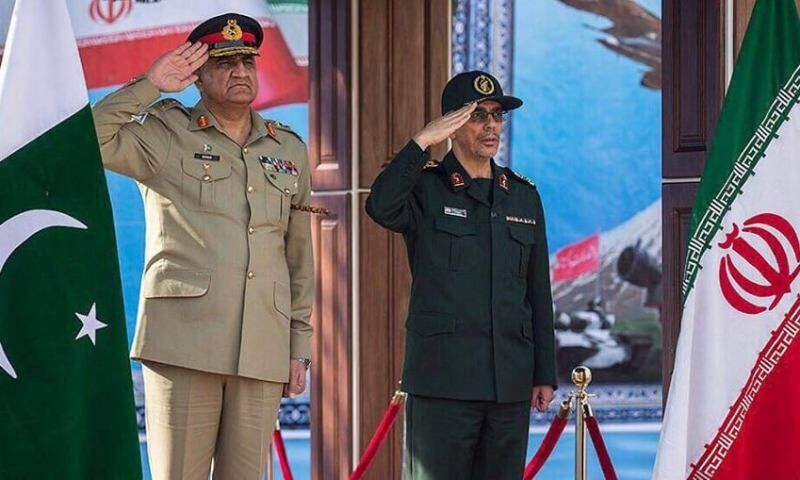
Tehran, Islamabad committed to consolidate military ties

EghtesadOnline: In recent years, Tehran and Islamabad have witnessed high level exchanges from top military officials and the recent visit of Pakistan Army Chief to Iran demonstrates the commitment of the two sides to consolidate defense ties through active diplomacy.
Pakistan's Chief of the Army Staff General Qamar Javed Bajwa arrived in Tehran on Monday to discuss defense cooperation between the two countries.
It is the second visit of General Bajwa to Iran which also shows that enemies of Iran and Pakistan have failed to divide both countries through their conspiracies, according to IRNA.
Till now General Bajawa has met with the Chief of Staff of the Iranian Armed Forces Major General Mohammad Hossein Baqeri, Secretary of Iran's Supreme National Security Council Admiral Ali Shamkhani and Iran's Army chief Major General Abdul Rahim Mousavi.
Last month, Prime Minister Imran Khan visited Tehran as part of efforts by Pakistan to facilitate talks between Tehran and Riyadh.
Pakistan’s former ambassador to UAE Air Marshal (retd) told IRNA that General Bajwa is a very sensible and an intelligent chief. He is against sectarian divide and wants to bring hegemony among all Muslim states.
The analyst said that Gen Bajwa is against extremist elements and the two countries can work together against these elements and work together for a peaceful border and the two countries.
“This visit will bring the two countries together and he can influence the Arab states to have cordial relations with their neighbours,” said the former diplomat.
Senior journalist Kamran Yousaf responding to the queries of IRNA said that the visit of Pakistani army chief is part of ongoing high level exchanges between the two countries against the backdrop of regional security situation.
He added that the agenda is bilateral as well as discussions on regional issues. “On bilateral front, the two countries are making efforts to secure their border,” said the journalist.
Kamran Yousaf added that the frequent visits of military leadership of the two countries show that they seek to deepen their security and defense cooperation.
“On regional issues, yes Daesh is a threat for both Iran and Pakistan and this must have been discussed between the two sides during General Bajwa's visit,” viewed the analyst.
He said also, tensions between Iran and Saudi Arabia would be one of the talking points.
“Pakistan is trying to defuse tensions in the Persian Gulf region since it doesn't want any conflict between the two Muslim countries,” Yousaf noted.
Dr. Rizwana Abbasi, Associate Professor of International Relations at National University of Modern Languages (NUML) told IRNA that timing of Pakistan’s COAS visit is important considering evolving broader regional security dynamics.
She said Pakistan currently aims at achieving harmonious and peaceful relations with all the neighboring countries in order to promote socio-economic growth and better living standards for the people of the country and region.
“Thus aspects relating to bilateral security, peace and stability become relevant to legitimize harmonious relationship between countries,” said the scholar.
The analyst noted therefore, Pakistan and Iran both aim at strengthening military to military cooperation in range of areas to promote shared pace and stability as part of broader evolving cooperative relations.
She viewed that the two military leaders would certainly discuss future security environment in Afghanistan as both are key players in bordering Afghanistan that aspire non-military, diplomatic and peaceful solution in the country.
“Afghanistan's neighbours, Iran and Pakistan, will play peaceful role in the post-withdrawal environment in Afghanistan,” she said.
Abbasi went on to say that the two states will also closely discuss new border security mechanism between Iran and Pakistan in order to minimize shared threats.
She was of the view that Pakistan has the potential and ability to bridge trust deficit between Iran and Saudi Arabia amid intensified security situation as Pakistan is an important ally of both Iran and Saudi Arabia.
“Security mechanism relating to Border trade is an important aspect as Pakistan wants to capitalize on shared regional economic gains in an era of corridors,” the scholar said.
A senior journalist Tahir Khan talking to IRNA said that normally bilateral matters come under discussion during in any visit. He added that Iran and Pakistan have been holding talks to resolve security issues and border issues.
He pointed that Iran and Pakistan are located on international drug trafficking route and curbing the menace of drug tracking is a common objective of the two states.
The analyst went to say that situation of Afghanistan would also be discussed between the meetings of Pakistan Army Chief with Iranian military commanders because security of Afghanistan has direct impact on both Iran and Pakistan.
He added the presence of Daesh in Afghanistan is not a major concern for Iran and Pakistan because the terrorist organization has become weak and most of their fighters have surrendered.
Tahir Khan added that as we know that Pakistan’s relations have been improved with the US in recent months so China, Russia and Iran are curious about the development and somehow concerned to some extent.
He added that Pakistan also wants to play a role in defusing tensions in the Middle East.


